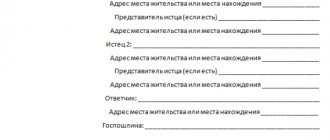The gift agreement, like any other civil transaction, is subject to the provisions of Chapter 9 of the Civil Code of the Russian Federation, which define the grounds for declaring this gratuitous agreement invalid . The norms of Art. 168 of the Civil Code, the legislator determined the general basis for the invalidity of all gift transactions, according to which any gift deed is considered void (invalid) if it does not comply with the general and special requirements of the law for a given legal relationship. In this case, according to paragraph 1 of Art. 167 of the Civil Code, a deed of gift cannot entail any of its inherent legal consequences - the creation of an obligation of the donor, property rights of the donee, etc.
Additionally
Depending on the procedure for recognizing the donation as invalid, in accordance with paragraph 1 of Art. 166 of the Civil Code, the legislator divides these transactions into voidable and void. Voidable transactions require recognition of their invalidity by the court, while void transactions are invalid without such recognition. However, the application of the consequences of invalidity is possible only in court.
Demand recognition of the invalidity of the donation, as well as the application of the consequences of such invalidity depending on the procedure for its recognition, in accordance with Art. 166 of the Civil Code, may be the party to the donation specified in the law or any other interested party who has an interest protected by law. If it is necessary to protect public interests, the court is also vested with the right to apply the consequences of declaring a gift invalid, in accordance with paragraph 4 of this article.
As a general rule, an invalid gift agreement is considered invalid from the moment it was concluded by the parties , regardless of the date the court made a decision on it. An exception to this rule is contained in paragraph 3 of Art. 167 of the Civil Code, according to which, if a voidable donation is of a continuing nature, then it can be terminated only for the future.
The possibility of declaring a gift invalid should be fundamentally distinguished from the right of the parties to terminate (Articles 450, 573, 577 of the Civil Code) and cancel (Article 578 of the Civil Code) the donation. In contrast to invalidity, these institutions are generally applicable exclusively by the parties and can terminate legal relations only in the future.
Attention
The parties who, at the time of concluding an invalid donation, knew or should have known about the existence of grounds for invalidity, after the transaction is recognized as such, are considered to have acted in bad faith .
The consequences of the invalidity of the transaction are defined in paragraph 2 of Art. 167 of the Civil Code, according to which the only consequence is mutual restitution - the return by the parties of everything received under the transaction to each other. In relation to a gift, this means that the recipient is obliged to return the gift to the donor. Due to the gratuitousness, the donor could not receive anything from the concluded transaction, and therefore, restitution is not applicable to him (except in cases of recognition of invalidity due to compensation under paragraph 2 of Article 170 of the Civil Code).
Grounds for invalidity of a gift agreement
The legislator, by the norms of the Civil Code, has determined a fairly wide list of grounds for invalidating a gift agreement. general grounds for all civil transactions, defined in Chapter 9 of the Civil Code, and special grounds , defined in Chapter 32 of the Civil Code, can be applied It is necessary to understand that special grounds operate within the framework of general ones and expand them.
Important
The fact that there are grounds for recognition of invalidity can be recognized exclusively by the court at the request of an interested person. According to Art. 56 of the Code of Civil Procedure, such an interested party will have to prove the existence of grounds as a substantiation of the requirements to invalidate the donation.
Thus, as reasons for recognizing the invalidity of a gift, circumstances should be highlighted when:
- The gift agreement does not comply with the law and other regulations (Article 168 of the Civil Code). This ground occupies a special place because it generalizes all subsequent grounds and is applied in the absence of a more special rule for invalidation.
- The gift agreement is contrary to morality and the fundamentals of law and order (Article 169 of the Civil Code). A rarely used basis aimed at anti-social transactions. Contains confiscation consequences exclusive to civil law.
- The gift agreement is imaginary or feigned (Article 170 of the Civil Code). A common ground in practice, it is used in cases where a donation is made to create the illusion of its consequences or to cover up any other transaction.
- The gift agreement was concluded by an incapacitated, minor, minor or person with limited legal capacity (Articles 171, 172, 175, 176 of the Civil Code). All of these persons have a common feature - the lack of full legal capacity, which, according to paragraph 1 of Art. 575 of the Civil Code, prohibits them from making a donation. Let us note that in relation to minors and persons with limited legal capacity, such invalidity is considered contestable and only by their legal representatives.
- The gift agreement was made by a person who did not understand the essence of the meaning of participation in this transaction (Article 177 of the Civil Code). This misunderstanding should not be confused with incapacity - it must occur due to external circumstances that led the person to such a state.
- The donation was made by a person under the influence of delusion (Article 178 of the Civil Code). The presence of this basis presupposes the presence of a defect of will - the person’s making a donation was influenced by circumstances regarding the essence of which such a person had an erroneous understanding.
- The gift agreement was concluded under the influence of threat, deception, violence or a combination of difficult circumstances (Article 179 of the Civil Code). External factors such as threat, violence and deception prevent a person from expressing his true will regarding the donation being made. Thus, there is a defect in the will of the donating party, which determines its invalidity.
- The gift agreement was concluded with the condition that there is a counter-representation or obligation of the donee (clause 1 of Article 572 of the Civil Code). The specified special basis violates the main feature of a gift - gratuitousness and corresponds to clause 2 of Art. 170 of the Civil Code, since the remuneration of the donation determines its pretense.
- The gift agreement contains a promise to donate all property (clause 2 of article 572 of the Civil Code). This special basis assumes that the parties have not reached a consensus on the only essential condition of the donation - its subject (Article 432 of the Civil Code), which in fact is the only basis for recognizing the contract as concluded.
- The gift agreement contains a promise to donate property after the death of the donor (clause 3 of Article 572 of the Civil Code). The legislator directly points out the nullity of such an agreement and requires the application of inheritance rules to it.
- The gift agreement was concluded orally, while the legislator requires written execution (clause 2 of article 574 of the Civil Code). This basis corresponds to Art. 168 of the Civil Code and refers to consensual agreements and agreements where the donor is an organization.
- The gift agreement was made by persons to whom or in relation to whom this is prohibited (Article 575 of the Civil Code). The basis expands the list of persons specified in Art. Art. 171, 172, 175, 176 of the Civil Code, defining not only those who cannot act as donors, but also those who are prohibited from accepting gifts due to certain circumstances.
Example
Citizen K., being the mother of minor M., acting as the legal representative of her daughter, decided to give a car belonging to M., which the latter inherited from her grandfather, to her partner. On behalf of M., K. executed a written donation agreement and handed over the keys to the car to its new owner. K.'s ex-husband, M.'s father, learned about this fact. Despite the fact that he did not live with his daughter, being one of her parents, he was also her legal representative. Realizing the possibility of a legal representative to protect the property rights of his child, in accordance with Art. 52 of the Code of Civil Procedure, M.’s father filed a lawsuit against K. and her cohabitant, with the aim of recognizing the agreement concluded by her as invalid and returning the car to the ownership of his ward, minor M.
In support of his position, Father M referred to the direct indication of the nullity of such a transaction in Art. 172 of the Civil Code of the Russian Federation, in view of its commission by a minor, since in fact, the donor in the transaction was the owner of the car, M., and K. only represented her interests. In addition, Father M. referred to the direct instruction prohibiting such donations in Art. clause 1 art. 575 of the Civil Code, which determines the impossibility of making a gift from a representative of a minor. Based on this, M.’s father demanded confirmation of the invalidity of the concluded transaction, and guided by paragraph 2 of Art. 167 of the Civil Code, oblige K.’s cohabitant to return the car to M.’s ownership, and if this is impossible, to reimburse its actual cost. The defendants, K. and her partner, did not appear at the hearing.
The court, having heard the arguments of Father M., considered them sufficient to recognize the invalidity and made a decision that satisfied his requirements in full.
Voidability and nullity of the gift agreement
According to Art. 166 of the Civil Code, the legislator divides all invalid gift agreements into two categories - voidable and void agreements. As criteria by which the division into these categories is made, the legislator provides the procedure for recognizing the invalidity of such transactions, as well as the circle of persons who can use such a procedure. Thus, voidable transactions can be declared invalid only by decision of a judicial authority, while void ones are invalid as prescribed by law, i.e. regardless of the court's opinion on this matter.
Additionally
This division is reflected in the procedural procedure for challenging the donation. Thus, in relation to a voidable transaction, the claim of the interested party must contain a demand for recognition of invalidity and application of the corresponding consequences, while in relation to a void transaction - only for the application of consequences, since if there are grounds for this, the transaction is already invalid.
According to paragraph 4 of Art. 166 of the Civil Code, the court has the right to independently apply the consequences of invalidity to a void transaction if required by the protection of public interests. In relation to voidable transactions , recognition of invalidity and application of its consequences is permissible only at the request of specified specific persons - this is not provided for on the initiative of the court .
In addition, the division of invalid donation transactions into these categories is reflected in the statute of limitations during which interested parties can challenge the donation. So, according to Art. 181 of the Civil Code, a void donation can be challenged within 3 years from the moment the person learned of the violation of his rights, while in relation to contestable transactions, such persons are given only 1 year.
Return and refusal to accept a claim
Articles 134 and 135 of the Code of Civil Procedure define cases when a judge may decide to return a statement of claim or refuse to accept it. Any decision must be justified. Within five days, a reasoned ruling is issued, which is handed or sent to the plaintiff with the entire package of submitted documents. The statement of claim may be returned for the following reasons:
- challenging a gift agreement is beyond the jurisdiction of the judicial authority to which the claim was sent (when motivating the return of documents, the judge must indicate to which court the plaintiff should apply with this statement of claim);
- the application was submitted by an incapacitated person (incapacity can only be confirmed by a court decision) or a person who does not have the authority to do so (the authorized person does not have a power of attorney to conduct the case);
- the application is not signed by the plaintiff, is not drawn up in accordance with the form, has errors, or the necessary additional documents are not attached to it;
- a similar case (the parties, the subject of the claim and its grounds are identical to the one filed) is being processed by another court;
- Before the claim was accepted, the plaintiff himself withdrew his application.
Attention
If the claim was returned to the plaintiff, then after the violations have been eliminated, he has the right to re-file it.
A judge may refuse to accept a claim in the following cases:
- the application is not subject to consideration and resolution in civil proceedings;
- an application to challenge the gift agreement was filed by the plaintiff, whose rights and interests are not affected by the agreement;
- there is a ruling by another court to refuse the same case (the parties, the subject of the claim and the grounds are identical to the one filed) or a decision made by another court on it has entered into legal force.
If the plaintiff was denied acceptance of the statement of claim, then the same claim is not filed again . You can file a private complaint against the judge’s decision to return the application or to refuse to accept it.
Imaginary gift agreement
Based on the meaning of paragraph 1 of Art. 170 of the Civil Code of the Russian Federation, a gift transaction should be considered imaginary, which is carried out by its parties only to create the illusion of its conclusion, without the purpose and desire of the occurrence of specific legal and civil consequences characteristic of a transaction of this type. Such a donation should be considered void - if there are grounds to consider the donation as such, a court decision is not required to recognize it as invalid.
For your information
As a rule, such transactions are carried out by the parties to the donation, pursuing the goal of hiding the property transferred under the agreement from creditors, tax, judicial and other competent authorities who have legal grounds to foreclose on such property benefit hidden by the parties to the donation.
The lack of direction of the expression of will of the parties to the donation towards the emergence, change or termination of any civil rights and obligations is a defect of the transaction - its true design requires exactly the opposite. Based on this, like any other transaction, an imaginary donation does not meet the characteristics of a civil transaction, which is why it should be considered invalid.
The legislator has not established the special consequences of concluding an imaginary contract. Thus, if their use is required, one should be guided by clause 2 of Art. 167 of the Civil Code and apply the general consequences - mutual return of everything received by the parties to the transaction.
Since the internal will of the parties to an imaginary donation diverges from their external expression of will, properly formalized, such an agreement should be classified as a transaction made with a defect of will. Despite the fact that such discrepancies in the will of the parties are far from an obvious fact and require convincing proof , the legislator still perceives this transaction as void, which we cannot but take into account.
Statute of limitations
The expiration of this period does not always entail the termination of the right to go to court to resolve the dispute . If it is proven that this deadline was missed for valid reasons, then the defendant’s application may be accepted. Let's look at the most common reasons for missing the statute of limitations.
Valid reasons are:
- Treatment in a hospital.
- Strong emotional excitement, hypnotic influence, inadequate state due to potent medications or narcotics.
- Change of place of residence - this usually includes serving a sentence in prison or serving in the Russian army.
- Ignorance or lack of knowledge of the Russian language.
A more complete list of valid reasons is presented in Art. 205 of the Civil Code of the Russian Federation.
Sham gift deed
According to paragraph 2 of Art. 170 of the Civil Code of the Russian Federation, a gift agreement that is made by its parties without the purpose of causing specific legal consequences characteristic of an ordinary gift should be considered feigned, but is concluded only to cover up some other transaction and the true will of the parties to the agreement . Like an imaginary, a sham contract is void, i.e. its invalidity, if there are obvious grounds for it, does not require recognition of it as such by the court.
Additionally
Most often, due to its inherent gratuitous nature, a donation is a transaction covering compensated contracts. As a rule, the sham of a gift is directly evidenced by the presence in the contract or in fact of a counter-representation or obligation on the part of the donee in favor of the donor (covering the purchase and sale, rent, barter, etc. with a gift).
When making a feigned donation, the actual will of the parties does not correspond to their expression of will under the agreement they signed. Based on this, the legislator provides for a special consequence that differs from restitution - taking into account the essence of the covered transaction, the rules governing it are applied to it. Thus, the court may oblige the parties to the sham donation to conclude the transaction that they were trying to cover up .
The main purpose of concluding a feigned gift is to achieve illegal consequences , in particular, bypassing regulatory prohibitions, restrictions and evading statutory obligations. Based on this, we can highlight the main purpose of the rules on sham transactions - to establish a barrier for such unlawful actions of various persons.
Despite the insignificance - the initial invalidity of a feigned donation, proving it in court proceedings is quite difficult . This conclusion is based on the fact that the criteria by which one can judge the sham of a gift are hardly amenable to general expression. The only such indisputable criterion, a direct indication of which is in paragraph 1 of Art. 572 of the Civil Code, this is the presence of a counter-representation or obligation of the donee.
To confirm the sham of the donation, the interested party is provided with a full range of tools for proof, including the involvement of witnesses and the presentation of circumstantial evidence. In practice, the issue of recognizing the sham of a gift is always resolved on an individual basis, taking into account the actual circumstances of the case - indisputable nullity occurs extremely rarely .
The procedure for invalidating a gift agreement
A gift agreement can be declared invalid only in court , at the request of a party to the transaction, a specific person specified in the law, or interested in recognizing the invalidity of any other entity (Article 166 of the Civil Code). To do this, such a person will need to file a lawsuit with a request to recognize the gift agreement as invalid and apply the consequences corresponding to the invalidity, which may be different, depending on the basis for the challenge.
Important
When filing a claim, it is necessary to take into account which category the disputed transaction belongs to - void or voidable. This directly affects the admissibility of challenging a specific person, the claims he makes and the period during which such a transaction can be challenged.
Before filing a claim for recognition of invalidity, the interested party must pay the state fee, which is required by Art. 132 of the Code of Civil Procedure, otherwise the claim will be left without progress (Article 136 of the Code of Civil Procedure). According to Art. 333.19 of the Tax Code, the amount of the duty in such cases will be for individuals. individuals - 300 rubles, for organizations - 6 thousand rubles .
To the interested party who challenges the donation, in accordance with Art. 56 of the Code of Civil Procedure, the burden of proof is placed on the facts to which she refers when substantiating her claims to invalidate the donation. Based on this, the plaintiff must provide evidence that will in one way or another indicate the existence of grounds for recognizing invalidity and applying its consequences.
If the evidence of non-compliance with the legal requirements is clear, and the transaction, due to direct instructions in the law, is void, the interested party may not make a request for recognition of invalidity, limiting himself only to a request for the application of consequences - such a donation is invalid from the moment of its conclusion . If the transaction is voidable, such a requirement cannot be avoided.
If the court considers the evidence provided by the person to be sufficient to recognize the invalidity of the donation and apply its consequences, it will make an appropriate decision by which it will oblige the parties to perform certain actions - return what was received under the transaction (clause 2 of Article 167 of the Civil Code), enter into another transaction (clause 2 Article 170 of the Civil Code), etc.
It is obvious that the very fact of recognition of invalidity is unlikely to satisfy the interested party - its goal, first of all, will be the onset of consequences to which the court will oblige the parties. If the parties refuse to comply with the court order, the interested party must initiate enforcement proceedings, within the framework of which the decision will be enforced.
The procedure for challenging a deed of gift
How to challenge a donation? To do this you need:
- prepare evidence;
- file a claim;
- attach to it the information received in the form of documents, records, etc.;
- pay the state fee. The claim is of a property nature, so the amount of the fee will depend on the value of the claim, determined by an independent appraiser;
- submit documents for consideration;
- wait for the court's decision and receive it in your hands.
After the court rules in favor of the plaintiff and cancels the transaction for the gratuitous alienation of property rights, it is necessary to re-register this right. To do this, you need to contact Rosreestr in any convenient way. The basis for re-registration of the right will be an act of a judicial authority.
Collection of evidence
An important point in the property return procedure. Without evidence, the court will not consider the claim. Documents, testimony of witnesses (relatives, neighbors, work colleagues), photo, audio and video materials can be used as evidence. They must be attached to the claim.
Documentary evidence may include medical reports on the donor’s insanity, a doctor’s report on alcohol dependence, and other evidence.
Important! If the donor has already died, then it will be quite difficult to prove his incapacity or insanity at the time of signing the documents. A psychiatric examination of the deceased is carried out in the presence of strong evidence and medical documents. If the former owner or his relatives never sought the help of a doctor, then it will be impossible to prove the fact of insanity or psychiatric illness.
In addition, the following documents can be attached to the claim as evidence:
- receipts confirming receipt of a specific amount of money for the donated property;
- records in medical records from public and private medical institutions about the presence of certain diseases in the previous owner;
- conclusion of a psychiatric examination;
- other.
Is it possible to appeal a deed of gift? It is possible, but only in court and with strong evidence.
Search for a lawyer
It is recommended that you entrust the process of appealing a gift agreement to a lawyer. To find a professional and increase the chances of a satisfactory outcome of the case, you need to study information about a particular lawyer. You can listen to the opinions of friends/family/relatives who have previously turned to one or another lawyer for help.
An experienced lawyer will help you draw up a claim, prepare other procedural documents, and collect evidence.
Drawing up and filing a claim
The statement of claim must be correctly drawn up. It is better to entrust this to a lawyer, but if this is not possible, then you need to rely on Art. 130 Code of Civil Procedure of the Russian Federation. It states that the claim must include:
- the full name of the judicial authority to which it is submitted;
- information about the plaintiff and defendant - full name, residential address, contact information;
- “body” is a description of the circumstances that led to the application being filed with the court;
- links to current legislation;
- requirement to appeal the contract;
- attachment – a list of documents confirming the facts stated in the application;
- date of signing;
- the applicant's signature and its transcript.
Important! An incorrectly drafted claim will not be accepted by the court for consideration. In order not to waste time, it is recommended to contact a lawyer who will not only draw up a claim correctly, but will also represent the interests of the principal in court.
Waiting for a court decision
The court will consider the case on its merits, study all the evidence presented, and examine its relevance. If there are grounds for canceling the agreement on the gratuitous transfer of property into ownership, the court will take them into account.
If the act of the justice body is in favor of the plaintiff, the transaction will be canceled. Based on the court decision, it is necessary to re-register the property right to the plaintiff. To do this, you should contact Rosreestr:
- personally;
- through the MFC;
- through the State Services portal.
It is necessary to prepare documents for registration of rights and pay a fee of 2,000 rubles.
Cancellation of donation
The provisions of Art. 578 of the Civil Code establishes one of the most pronounced features of a gift agreement - the donor’s right to cancel the transaction . The specified law is applicable to them, regardless of whether the contract was concluded through the transfer of a gift or was executed after the promise of its transfer, the main thing is that their application is possible only after the actual execution of the transaction . The donor's right to cancel the gift is due to the fact that when enriching another person at his own expense, the donor can well count on loyalty on his part. The grounds for cancellation precisely exclude such loyalty.
For your information
The institution of cancellation of donation cannot be identified with the norms of termination and dissolution of the contract, as well as declaring it invalid. The cancellation of a donation, in contrast to the termination of legal relations under a contract, is aimed at the annulment of the donee’s property rights and does not initially contain defects in the transaction as grounds for invalidity.
The first reason for canceling the donation, according to paragraph 1 of Art. 578 of the Civil Code, it should be considered the infliction of bodily harm by the donee or an attempt on the life of the donor and his relatives . Such unworthy behavior of the donee, in order for it to become the basis for cancellation, must be deliberate and confirmed by official documents - certificates, extracts from the criminal case, etc.
In addition, the donation may be canceled due to dishonest use of the gift , which has a large non-property value for the donor, which may result in its irretrievable loss (clause 2 of Article 582 of the Civil Code). In court, the donor will have to prove the fact of such use by the donee of the thing transferred to him.
Cancellation of a donation is also possible if the donor outlives the donee , provided that such a right of the donor is enshrined in the gift agreement (clause 4 of Article 578). Based on this, the donor will definitely be deprived of this right if he makes the gift agreement orally.
Since the general grounds for cancellation are not applicable to a separate form of gift - donation, according to paragraph 5 of Art. 582 of the Civil Code, it can be canceled on a special basis - the use of a donation for other purposes or a change in such purpose in violation of the procedure established for this.
According to paragraph 5 of Art. 578 of the Civil Code, the consequence of the cancellation of the donation should be considered restitution - the obligation to return the gift that has been preserved in kind to the donor, and if it is lost, compensation for its value in accordance with paragraph 1 of Art. 1105 Civil Code. Since the consequences are of a legal obligation nature, the cancellation of a gift, in case of refusal to voluntarily return the gift, can only be carried out in court.
What is a deed of gift
A gift agreement is an agreement under which one person (aka the donor) gives as a gift, that is, free of charge, to another person (aka the donee) some property. For a transaction to be legally correct, the document must be drawn up in accordance with the requirements imposed on it by Chapter 32 of the Civil Code of the Russian Federation.
Basic concepts and essence
Challenging a deed of gift is the recognition of a transaction as invalid due to certain circumstances. This can only be done in court. There must be good reasons for this. For example, the agreement was signed under pressure.
These facts must be proven to the court. For example, if the donor was declared incompetent at the time of signing the agreement, there must be a medical report and a corresponding judicial act.
To challenge, you must file a claim in court.
Requirements of legislative acts for a gift agreement
A gift agreement is a civil law agreement, and certain requirements are imposed on it. It must contain essential and additional conditions. Essential conditions are mandatory rules, without which any contract cannot be valid. Additional terms are those rules that can be included in the “body” of the agreement at the discretion of the parties.
For a gift to be recognized as a valid transaction, the agreement:
- must be in writing;
- if necessary, certified by a notary;
- if the subject of the donation is real estate, then it is registered in Rosreestr.
To the essential conditions, according to Art. 432 of the Civil Code of the Russian Federation, refers to a description of the subject of the transaction. If it is an item of real estate, then it is necessary to provide information so that a third party can easily determine what kind of item it is. It is necessary to register:
- parameters – area (living/common), number of rooms, on which floor it is located;
- cadastral number;
- exact address of location;
- type of property right;
- presence/absence of encumbrances.
Information about both parties to the transaction should also be written down in some detail:
- full name;
- passport details;
- address of residence or registration;
- Contact Information.
If the parties to the agreement are close relatives, then it is enough to draw up a simple written form of the document. The relationship will need to be confirmed when registering the transaction. If the parties are not relatives or are not related by close blood ties, the agreement must be certified by a notary.
Peculiarities
Upon agreement, the parties may additionally specify:
- term for transfer of rights;
- the procedure for making payments;
- conditions for returning the gift. For example, if the donee survives the donor, the subject of the transaction may be returned. Is it possible to challenge a deed of gift after the death of the donor? It is possible, especially if the return condition is written in the “body”;
- other conditions.
Important! Often, an additional condition for donation is the right of lifelong maintenance of the donor and his permanent residence in the donated premises. This condition must be stated in the agreement and registered with Rosreestr.







